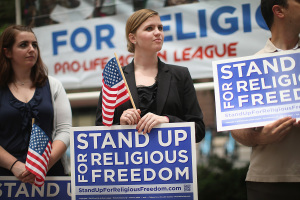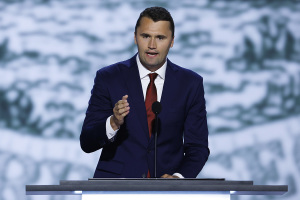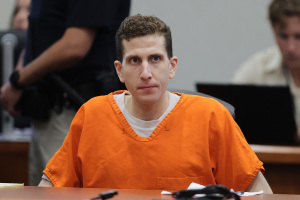PCUSA Pastors in Talks of a New Future
Members of the largest Presbyterian denomination in the country are currently aflutter with talks of a desperate need for change for the aging and shrinking body.
A group of them – 175 to be exact – believes the Presbyterian Church (U.S.A.) is "deathly ill" and will not survive without "drastic intervention."
"Is it time to acknowledge that traditional denominations like the PC(USA) have served in their day but now must be radically transformed?" the group of pastors, lay leaders and elders pose.
Leading the group are John Crosby of Christ Presbyterian Church in Edina, Minn., and Jim Singleton of First Presbyterian in Colorado Springs, among others.
In a letter, dated earlier this month, the group lamented that most Presbyterian churches have been seeing more funerals than infant baptisms, that internal disputes over such issues as homosexual ordination have been paralyzing their ministry, and that the only unity they seem to have left "is contained in the property clause and the pension plan."
"Our divisions revolve around differing understandings of Scripture, authority, Christology, the extent of salvation amidst creeping universalism, and a broader set of moral issues," they noted. "Outside of presbytery meetings, we mostly exist in separate worlds, with opposing sides reading different books and journals, attending different conferences, and supporting different causes. There is no longer
common understanding of what is meant by being 'Reformed.'"
They called their PC(USA) brethren to envision a new future together, one that involves congregations that "share our Presbyterian, Reformed, Evangelical heritage."
"We need something new," they stressed.
That "something new" includes a minimalist structure, "replacing bureaucracy and most rules with relational networks of common purpose" and a clear theological core.
They proposed forming a new network, currently named Fellowship, that would bring together like-minded Presbyterians and enable them to "build a future different than our fractured present."
And while they plan to continue conversations within the PC(USA), the group is also considering possibly forming a new Reformed body, an entity that would be outside the PC(USA).
They acknowledged that such an entity would leave fewer members in the denomination to "fight the challenges of the current PC(USA)."
But, they noted, "for many this outcome simply acknowledges that fighting is not the way we choose to proceed; our goal is not institutional survival but effective faithfulness as full participants in the worldwide Church. We hope to discover and model what a new 'Reformed body' looks like in the coming years."
Protestants from two other mainline denominations have already paved the road in establishing separate bodies for conservatives fed up with the liberal direction of their churches.
Last August, more than 1,100 Lutherans constituted the North American Lutheran Church after splitting with the Evangelical Lutheran Church in America. The year before, parishes representing 100,000 Anglicans, established their own church body called the Anglican Church in North America, after severing ties with The Episcopal Church.
Membership in mainline denominations in the U.S. has been in decline for decades. The PC(USA) suffered a 2.61 percent membership loss in 2009 and currently has just over 2.7 million members. To put it in perspective, the group of pastors wrote in their recent letter that the PC(USA) is now half the size it was a generation ago.
PC(USA)'s top leaders have acknowledged the restlessness and the many proposals being made to help ensure there is a future. They even thanked those who are putting forth challenges and ideas and encouraged others to join in the conversations.
Cynthia Bolbach, moderator of the 219th General Assembly, Gradye Parsons, stated clerk of the General Assembly, and Linda Valentine, executive director of the General Assembly Mission Council, recently stated, "We have ourselves been party to many conversations about the future of the church, convinced that it is the Spirit of Christ sparking conversations throughout.
"For we believe that it is in our places of brokenness that the work of Jesus Christ has always been most miraculous. The parables of our Savior are full of images that bear the hope of grace coming to a people living in hope, humility, faith. We live in the certain faith that this is Christ's Church, and for that reason, we engage in the re-formation of this church into the church we are being called to be."
Meanwhile, the group of pastors who released a letter this month urged brethren not to take offense at their expression and the bleak assessments they made about the current state of the church.
"Pease know that we are sharing from our own genuine experience," Singleton and Crosby said.
They have scheduled an August meeting in Minneapolis to explore the new movement they proposed.





























